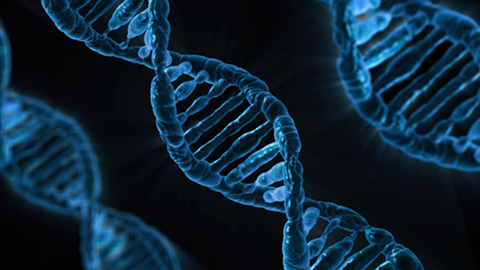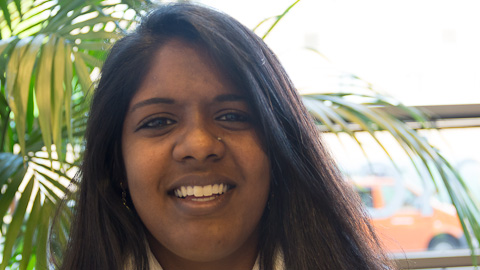New Master’s Degree Programmes Add to the International Education Offered at the University
Two new international Master’s Degree Programmes have been launched in the Faculty of Mathematics and Natural Sciences: Master’s Degree Programme in Molecular Systems Biology and in Food Development.

– There was a demand for international programmes at the University, and setting them up felt natural, as the research community was already international, Coordinators Minna Lintala and Jukka-Pekka Suomela agree.
Molecular Biology Methods for Wide Application
Coordinator Lintala says that Molecular Systems Biology is intended for Master’s Degree students who have basic knowledge in cell and molecular biology.
– The University of Turku students with a Bachelor’s degree in biochemistry or biology can choose to complete their Master’s studies in this programme. Also students from other Finnish universities or polytechnics can apply, as well as international students with a degree equivalent to our Bachelor’s degree, says Lintala and continues:– The programme focuses on research. It deepens the theories behind technologies which will be practised on laboratory courses. The programme, which can be completed in two years, consists of both theory and practice, including independent practical training periods such as training in research projects, and the master’s thesis project.
Having graduated from this programme, the student can proceed to do research or work in different bio industry enterprises or even in molecular medicine, depending on personal interests and choices.
The programme is organised as collaboration between two units of the University Department of Biochemistry – Molecular Plant Biology and Biochemistry – and Turku Centre for Biotechnology. The collaborative nature of the programme opens many doors.
– In terms of practical training and thesis project, the students have a choice between several research groups and areas of interest, ranging from plant biology to medical science. In this programme, we aim to teach skills and methods that can be applied widely in many contexts, says Lintala.
Food Development from a Technological Perspective
Coordinator Jukka-Pekka Suomela says that the technical Master’s Degree programme in Food Development is part of Food Science studies at the Department of Biochemistry, but the focus is different from food chemistry.
The focus of the programme is in technology, so food development and processing combined with chemistry and sensory properties are in a key position. Important areas of interest include studying Nordic natural resources such as berries and developing healthy food products with good chemical composition and sensory properties.
The programme can be completed in two years. The applicant should have technical skills and a link to food sciences. In addition, a Bachelor’s Degree or a polytechnic degree in engineering is required. There were approximately 40 applicants this year and 13 students started their studies in the new programme. On the whole, the majority of applicants were international.
The studies entail both theory and practice. For the thesis, the students perform a three-month practical work accompanied by a written piece.
– Students graduated from this programme can proceed to do research or work in a laboratory environment, industrial enterprise or in food safety, for instance, says Suomela.
More information on the programmes and application process:
>> Master’s Degree Programme in Molecular Systems Biology
>> Technical Master’s Degree Programme in Food Development
“The University of Turku Is a Nice Environment to Study”International student Pushpa Neppala, 22, came to the University of Turku in the beginning of August 2014 to study in the new international Master’s Degree Programme in Molecular Systems Biology. She completed her Bachelor’s Degree of Science and Biology at the California Institute of Technology.
Pushpa has been studying oncogenes and abnormalities in embryonic development that lead to cancer, and she wanted to take her research further. – I applied for a research grant and got it. My research mentor in America is Finnish. She recommended that I join a Master’s programme so I would have classes to supplement my research. That’s how I ended up joining the Molecular Systems Biology progra – Finland has a lot of opportunities for scientific research. The molecular systems biology is actually an emerging field so it is really novel and unique that the University of Turku is offering a Master’s Programme in just that field. Many universities in the US do not even have a systems biology department or, as Turku has, a whole programme dedicated to it. – The programme strives to have practical and theoretical knowledge of systems biology, so we’re taking lecture courses in molecular and systems biology, hands-on labs, transcriptomics and proteomics. The programme is doing a good job with merging the experimental and the theoretical fields of systems biology together. – I’ll probably be attending medical school in the United States when I go back. I hope to apply the principles of molecular systems biology I learn here to my career as a physician. Pushpa would recommend Finland and Turku to other international students: – It’s a nice environment to study. It seems like there are a lot of resources and opportunities here. Turku seems like a big student city and has a very vibrant student life. |
Aino Koivisto
